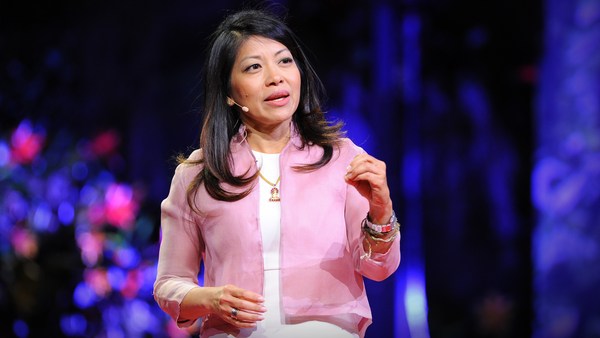(Applause) (Vance): Good morning, everybody. To start, Officer Nowak, I’d like to ask you a couple of questions. (Nowak): Sure. (Vance): Where did you grow up? (Nowak): East side of Buffalo. (Vance): How long have you been working in Attica? (Nowak): 26 years. (Vance): And why did you want to get into corrections? (Nowak): Well, living on the east side of Buffalo, there was a lot of crime, violence, drugs. I wasn’t gonna let the street swallow me up. So I chose to make a career. That’s when I came to corrections. (Vance): And why are you standing on this stage with two incarcerated men? (Nowak): Well me being one of the leaders of the YAP program, Youth Assistance Program, these guys are my mentors for the program. So I have a lot of respect for these two guys because they work with the youth. (Vance): And is it normal for corrections officers and incarcerated men to work together? (Nowak): No. (Laughter) (Vance): Okay. Jemar. (Kelley): Yes. (Vance): How long have you been at Attica? Can you tell us a little bit about what you’ve seen? (Kelley): I’ve been Attica for 12 years. Through my time here, I see a lot of different individuals come in these walls who tend to be young adults that should be in college instead of in the penitentiary. And I feel that in some way we should be able to do something about that. (Vance): Thank you. And Donovan, how does it feel to work with corrections officers? (Jackson): Nowak’s part of the team. We’re effective together in reaching the youth. (Vance): And Officer Nowak, how can Jemar and Donovan be examples and role models for the youth today? (Nowak): Well, you know what? Let them tell you, (Kelley):I’m identified as 05B1637. I’ve been charged and convicted of murder in the second degree attempted murder, and eight counts of criminal possession of a weapon for which I was sentenced to 50 years to life. And I currently served 16 years of that sentence. It's ironic that Officer Novak mentioned something about respect, because besides the various charges I was convicted of, respect or the lack thereof is the underlying reason why I'm here. Growing up on the east side of Buffalo, I stayed with my mother and stepfather, where no respect existed between us. As a result of fighting quite often, I moved out at the age of 13 to go live with my aunt. In doing so, I quickly realized that I became a financial burden on her as she struggled to take care of me and my cousins. This is why a 14. I decided to use the money that my mother had given me for school sneakers to buy drugs with the hopes of making more money to help out. Now this is one of the biggest mistakes of my life, because I became a part of the streets and all the different crimes and random acts of violence that comes along with living that life. It was during my junior year of high school that I found myself serving a sentence of four and a half years for attempted murder. For some reason, being violent and serving time causes people in the street to either fear you or respect you. By the time I was released, I earned the reputation of being both. Under the seduction of such foolish ideology, I became more violent, committed more crimes, and as a result of doing so, here I am, 42 years old and I was sentenced to serve more time in prison than I’ve been alive. While serving this 50-to-life sentence, I could probably think of 50 excuses of how I ended up in prison. But I choose not to do so. I realize that ultimately it was my poor decision making that decided my fate. I now understand that I must make better decisions in order to ensure myself of a better destiny. One of the better decisions I’ve made since my incarceration has been joining this youth mentorship program. I chose to do so, because I wanted to have a positive impact in the lives of our youth, as they will always be my primary objective. However, never did I expect this program or the youth to have just as much of a positive effect on my life as I intended to have on theirs. You learn so much from working beside the youth. With still much room for improvement, I already have become a much better father to my two ambitious daughters. They are both enrolled in college. (Applause) Investing in their futures, determined to make something of themselves despite my previous shortcomings. Playing a role in their success is what brings me so much joy. Similar to the joy that I receive from playing a small role in the lives of our youth, knowing that it propels them to go on and do such amazing things. (Applause) (Jackson): The one thing about prison, you must know, there are lines drawn between the people who work here and those who reside here. However, those lines cease to exist as we work together for one common goal: to deter at-risk youth from coming to prison. One way we’re able to effectively accomplish this is by showing the youth the parallel between Officer Nowak and Jemar. For instance, they’re both of a similar age, grew up on the east side of Buffalo, and both were surrounded by the negative influences of drugs, crime, and violence. Why is it that one has a badge number while the other has a department identification number? It simply boils down to the choices they made Sadly, many of the young adults who attend our program are making some of the same poor choices that landed my team and I in prison. It is extremely important that we help them improve their decision making so they can avoid growing up in prison. I want to be clear. We’re not a scared straight program for which I’m grateful because as my teenage daughters point out to me regularly, I’m not the least bit intimidating. (Laughter) We believe in education, not intimidation, It’s cool because it’s our personal experiences we use to reach the youth and convey the message that negative behavior leads to negative consequences. More importantly, we offer them positive alternatives to their negative lifestyles and inform them despite a person’s ethnicity, gender, or socioeconomic background, no one’s exempt from coming to prison or else this preacher’s only son, who grew up in the suburbs of Rochester, wouldn’t be speaking with them. The awesome sauce of our program is it’s completely voluntary for Officer Nowak as well. There are no accolades, nor do my team and I receive any time off our sentences for our contributions to our communities’ youth. For many of us, we are fathers, sons, or brothers. And we believe that positively influencing the life of a child is more than enough payment. Although our sessions with these young adults are insightful, impactful, and powerful, we’ve noticed a major decline in group attendance over the past five years, for two reasons. First being, one’s legal; the other’s financial. First being an unintended side effect of the newly enacted Juvenile Justice Delinquency Prevention Act, which prohibits minors who have had any contact with the criminal justice system from entering a prison. Second, due to a lack of funding and rising transportation costs. Our two calls for action are: Contact your local congressman. Speak with them about repealing certain parts of this act, because it is hurting the same people it’s supposed to help. Furthermore, what’s the price of a child’s life? One hundred dollars? Two hundred dollars? To transport 25 kids to Attica, it costs about that much. Please invest in our youth’s future by donating to your communities’ youth centers, churches, or schools. It's a future that we can't spell without you. Men like us are the best positive example to these young adults of where negative behavior and poor decisions will land them. We believe that prevention is the cure to keeping future generations from adding to the over two million incarcerated in America. Mass incarceration and young adults being sentenced to serve more time in prison than they’ve been alive: It’s everyone’s problem. You can be a huge part of the solutions by being active. Our motto is it takes a village to raise a child. In the theme of healthy living, let’s come together as one large village and help our future. Thanks for listening. (Applause) (Cheers)
Related talks
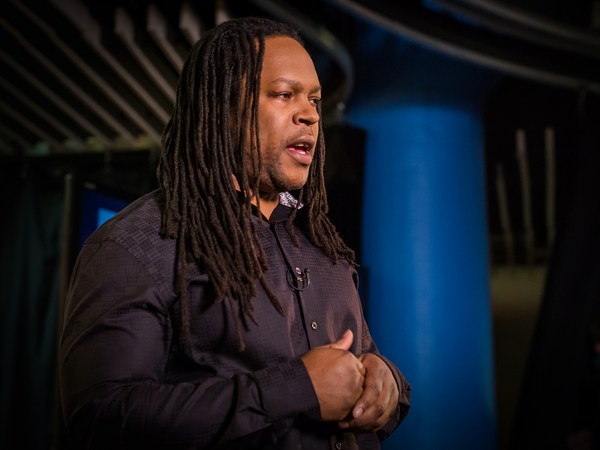
Shaka Senghor: Why your worst deeds don’t define you
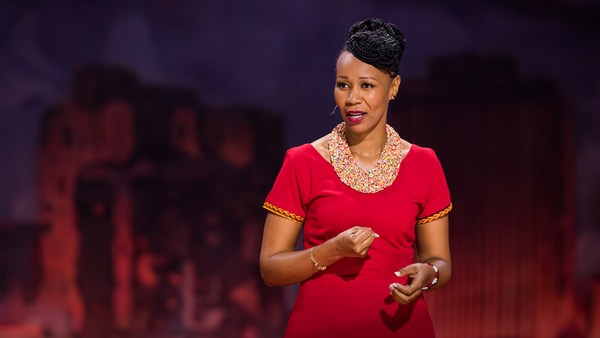
Teresa Njoroge: What I learned serving time for a crime I didn't commit

Kiran Bedi: A police chief with a difference
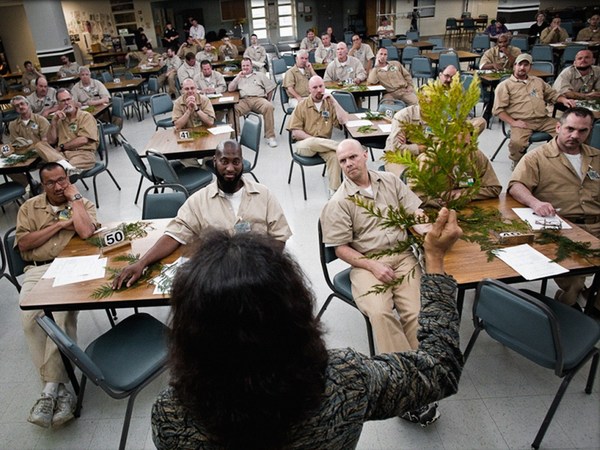
Dan Pacholke: How prisons can help inmates live meaningful lives
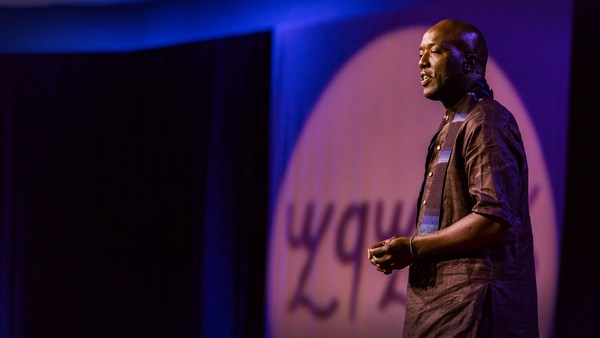
Peter Ouko: From death row to law graduate
